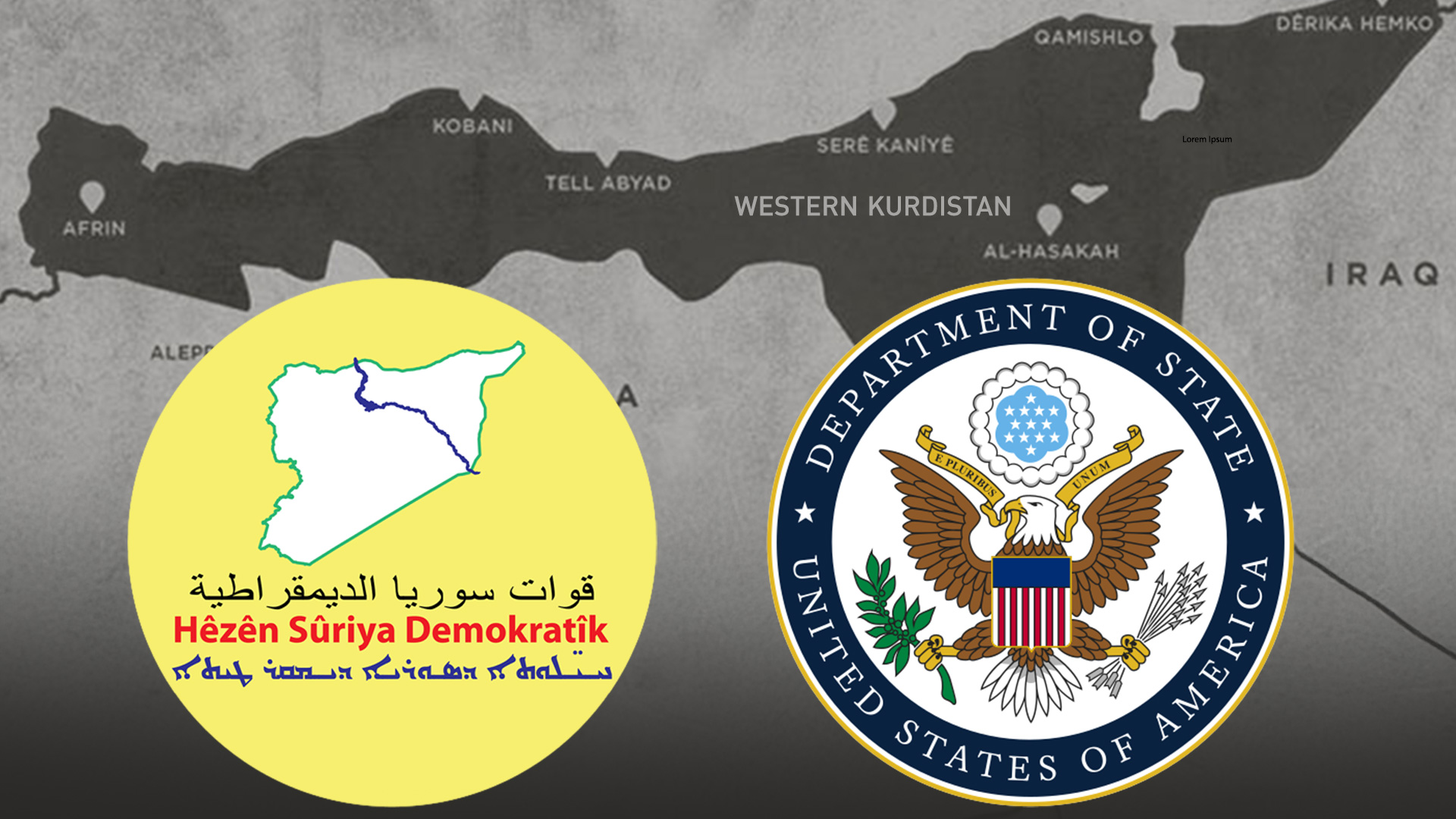U.S. Supports SDF Integration into Syrian Military Amid Autonomy Talks
US supports SDF integration into Syrian military, calls for dialogue with Damascus while maintaining Syria's territorial integrity. State Department stresses diplomatic solution amid Turkey's opposition to Kurdish autonomy.

ERBIL (Kurdistan24) – The U.S. Department of State reiterated its support for inclusive governance and continued dialogue between the Syrian Democratic Forces (SDF) and the Syrian government, emphasizing diplomacy as the pathway to peace in Syria. The remarks came during a press briefing on Tuesday, following questions concerning the U.S. position on decentralization and recent developments in northeast Syria (Western Kurdistan).
The reporter referenced recent comments by SDF military commander Mazlum Abdi, who declared that Syria needs to adopt a decentralized structure granting self-governance rights to all groups. Abdi said the centralized system had failed and disclosed that during his meeting with U.S. Ambassador to Turkey and Special Envoy Thomas Barak, the envoy appeared to understand that Syria “cannot be governed from a single center.”
This position, which aligns with the long-standing aspirations of the Kurdish-led administration in Western Kurdistan, comes amid strong opposition from Turkey, which links the SDF to the PKK and rejects any form of Kurdish autonomy near its border.
In response, U.S. State Department Spokesperson Tammy Bruce clarified the administration’s stance, emphasizing that Washington’s position on Syria’s territorial integrity has not shifted.
“We are continuing to support dialogue with the Syrian government and the Syrian Democratic Forces aimed at integrating the SDF into the Syrian military,” Bruce stated.
She reaffirmed U.S. backing for the SDF’s objective of transforming the current ceasefire in Western Kurdistan into a lasting peace, while underscoring the role of Syrians themselves in shaping the country’s future.
“Of course, we welcome all productive meetings between the SDF and President al-Sharaa,” she added. “It will be up to Syria and the new government to move the country toward peace and prosperity.”
Bruce also quoted a recent tweet from Ambassador Barak, posted on August 4, in which he addressed violent incidents in Suwayda and Manbij and affirmed that “diplomacy is the best way to stop violence and build a peaceful, lasting solution.”
Barak said the U.S. is “co-mediating with France the reintegration of the northeast into a unified Syria.” She concluded the subject and said that Syrians must resolve differences through dialogue, not conflict. “Syria deserves stability. Syrians deserve peace,” she said.
On Turkey’s Parliamentary Commission and the PKK
Asked whether the U.S. is following developments related to Turkey’s newly formed parliamentary commission — reportedly working toward ending the PKK’s armed campaign through legislative reforms and a peaceful transition — Bruce refrained from commenting on internal legislative actions of sovereign governments.
“We won’t comment on actions that governments are taking internally when it comes to legislation or moves that they seek to make,” she said. “Nor will I discuss the impact on what our negotiations might be or our relationship with other governments that are affected by something like that.”
However, she did note that she would follow up to see if any official remarks or clarifications could be provided at a later time.
The statements reaffirm the U.S. commitment to dialogue, stability, and inclusive governance in Syria, while maintaining its strategic partnerships on the ground, including with the SDF, in the context of preserving Syria’s territorial integrity and avoiding regional escalation.
